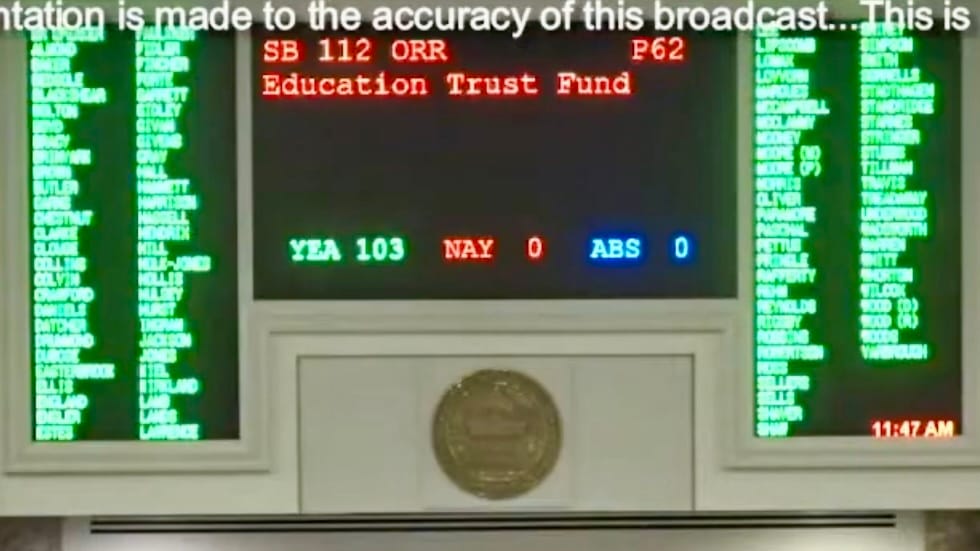AL House Passes Special Education Trust Fund Budget Package
Total outlays approach $12 billion

The Alabama House of Representatives passed a package of Education Trust Fund (ETF) budget bills on Thursday, April 24. With most of this year’s ETF budget bills originating in the Senate, this largely completes the Education budgeting process.
The package of bills was presented to the House by House Ways and Means Education Committee Chairman Danny Garrett (R-Trussville).
SB113, a supplemental Special Education Trust Fund budget, allocates $524,276,588 to various organizations, causes and projects.
SB113 passed by a vote of 103-0.
SB114, also a supplemental bill, allocates $1,285,048,402 from the ETF Advancement and Technology Fund to various institutions and organizations.
SB114 passed the House, 102-0.
SB305, the enabling legislation for the Renewing Alabama’s Investment In Student Excellence Act (RAISE Act), is a fundamental alteration in the way that the State funds education. It is a hybrid funding model based on student needs rather than purely on resources.
SB305 passed the House by a vote of 103-0
SB111 funds the RAISE Act with $375 million from the Education Opportunity Reserve Fund. This is expected to fund the RAISE Act for three years—$105 million this year, $125 million next year and $150 million the year after.
SB111 also funds the Creating Hope and Opportunity for Our Student's Education (CHOOSE) Act with up to $80 million dollars, again coming from the Education Opportunity Reserve Fund. This increase in funds was required because the number of applicants to the CHOOSE program greatly exceeded estimates. Any of the $80 million left over is supposed to revert back to the Reserve Fund.
During the debate on SB111, the point was made by Chairman Garrett that the three year RAISE Act funding was not only to avoid repeating the legislative funding process in the next two years, but also to demonstrate the State’s commitment to the new funding model established by the RAISE Act.
SB111, as substituted, passed the House 103-0.
SB303 revises the definition of principals and vice principals under the Principle Mentoring Act. Under the Act, additional stipends are paid to principals and vice principles who undergo the training of the Mentoring Act. The purpose of the definition change is to focus on giving additional stipends to those who work in “hard to staff” schools.
SB303 passed the House with 98-2, with 1 abstention.
HB600, exempting the Alabama School of Healthcare Sciences Foundation for all State, County and municipal sales and use taxes passed the House 102-0.
The School of Healthcare Sciences Foundation joins the Foundations for the Alabama School of Fine Arts, Alabama High School of Mathematics and Science and the Alabama School of Cyber Technology and Engineering in this exemption from these taxes.
SB112, the primary Education Trust Fund Budget, increases spending by 6% over last year, with an increase of $561 million to $9.9 billion. This is the maximum allowed by the secondary cap that limits budget growth. Chairman Garrett pointed out that next year’s budget is capped at an increase of 5.75%, for the same reason. This does not include RAISE Act funds.
SB112, as substituted, is 102 pages and contains a detailed spreadsheet of the proposed spending. Following a rather intensive floor debate, SB112, as substituted and amended, passed the House 103-0, with no abstentions.
Other ETF bills—SB150 (Talladega College), SB109 (Tuskegee University) and SB122 (Southern Preparatory Academy)—also were passed by the House.
The successful passage of these bills virtually ensures the completion of the ETF budgeting process during this regular legislative session, removing the specter of a dedicated special ETF session from the remaining four legislative days.




